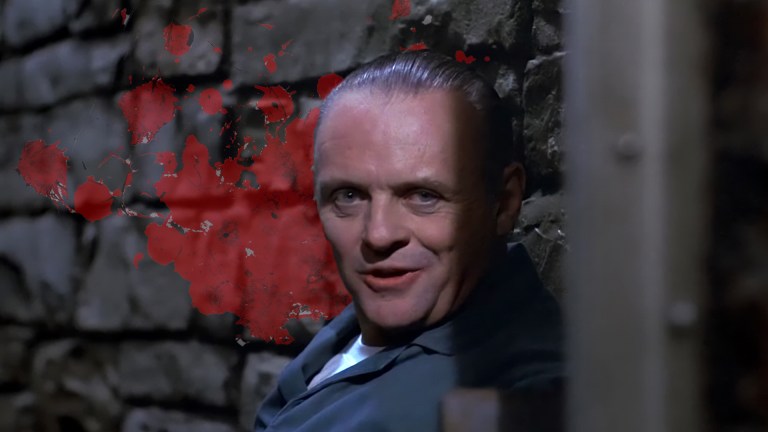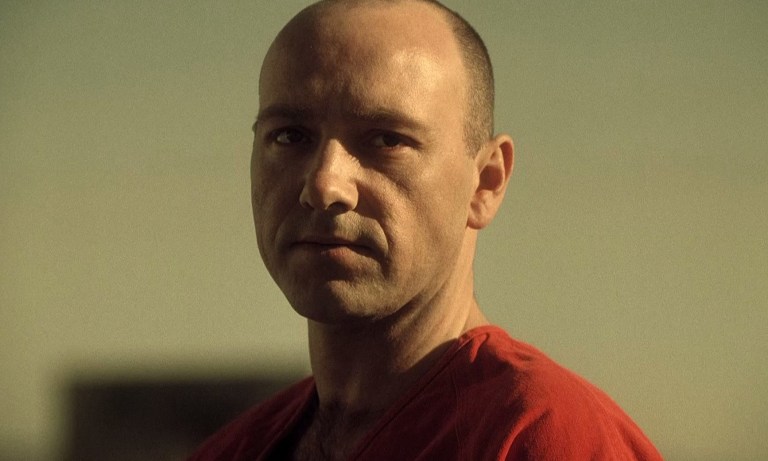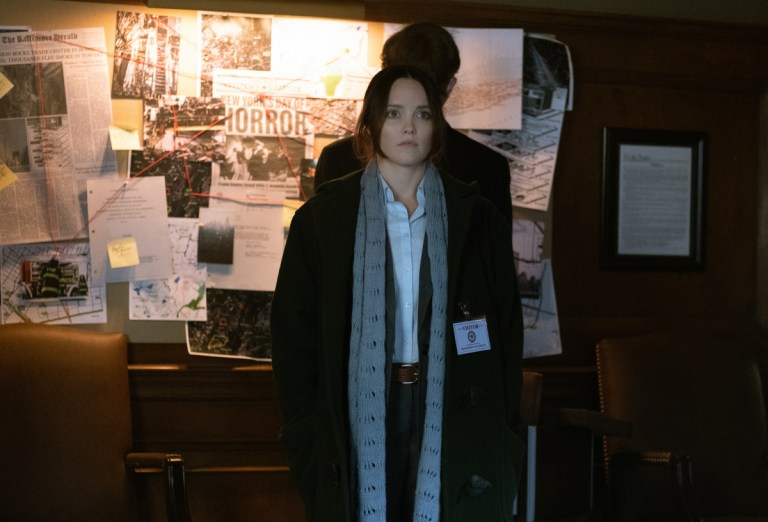
7 Absolutely Insane Cases That Shaped The FBI We Have Today
For just over 100 years the Federal Bureau of Investigation has been collecting intelligence in order to protect U.S. citizens from terrorism, foreign espionage, and major crime. Much of what we know about the FBI today comes from a series of television and film projects that focus on the Bureau’s behavioral science work. Popular characters like Clarice Starling from The Silence of the Lambs come through the FBI’s Behavioral Science Unit which studies how criminals think in an effort to better identify and prevent crime. So many of our popular cultural beliefs about crime come from the work of individuals in the FBI. Here are seven landmark cases you’ve probably already heard about that shaped the FBI we have today:
The Trailside Killer
David Joseph Carpenter, known as the Trailside Killer, wasn’t an especially prolific serial killer. The reason we remember this case is because the profile the FBI developed for Carpenter was eerily specific and spot on. It’s one of the earliest cases where profiling was successfully used.
After studying the series of murders, John Douglas’ (the real-life FBI agent who the character Jack Crawford, Clarice Starling’s boss, was based on) profile of the killer determined that the killer would be someone local to the area who was shy and may even have a speech impediment. He also thought the killer would be white, working-class, and someone who had previously been incarcerated. Douglas determined these things based on the killer preferring to blitz attack his victims rather than having the social skills to isolate them on his own.
After arresting Carpenter, it was discovered that not only did he have a severe stutter, he also had a childhood history of bed-wetting and cruelty to animals. Bed-wetting and animal abuse, along with fire starting, make up the MacDonald Triad, three characteristics that predict a future of violent serial offenses. Carpenter also fit the other aspects of Douglas’ profile.
The Lindbergh Baby Kidnapping
The kidnapping of the Lindbergh baby is one of the biggest criminal cases in U.S. history and the subsequent court cases were considered “trials of the century.” Charles Lindbergh and Anne Morrow Lindbergh were huge celebrities and the abduction of their 20-month-old child was covered obsessively in the press. As a result of this case, the Federal Kidnapping Act was created. This act, sometimes called the Lindbergh Law, ensures that the FBI can step in any time a kidnapper crosses state lines with the abductee.
D.B. Cooper Hijacking
In November 1971, a man who gave the name Dan Cooper boarded a Boeing 727 in Portland headed to Seattle. In flight, the man told a stewardess he had a bomb and hijacked the plane. He had the pilots land in Seattle and successfully received a ransom of $200,000. He then had the pilots take off en route to Mexico City. While in flight, Cooper parachuted from the plane and was never seen again. The FBI investigated the case from 1971-2016 but his identity remains a mystery to this day. It is the only unsolved case of plane hijacking and one of the biggest unsolved mysteries in FBI history.
Jonestown
In 1978, 909 people who were members of the Peoples Temple Agricultural Project (also called Jonestown, after leader Jim Jones) died from cyanide poisoning. The group had been living in Guyana because they thought it would be a “peaceful place to live.” At the time, the deaths were considered a mass suicide. Today, the deaths are usually called a mass murder because the investigation revealed that armed guards were ordered to shoot anyone who tried to flee. Additionally, about 1/3 of the victims were children. Jonestown was the largest mass casualty event in American history until 9/11.
The most insane thing about this case is that there is a 44-minute audio recording of Jim Jones speaking to the assembly of Jonestown members as he called for them to commit “revolutionary suicide.” Huge tubs of Flavor-Aid were mixed with cyanide and distributed to the community members and they were expected to drink or be shot. For children too small to take the poison on their own, syringes were used to squirt it into their mouths. As people began dying, Jim Jones told them, “Die with a degree of dignity. Lay down your life with dignity; don’t lay down with tears and agony.”
The FBI was able to extradite temple loyalist Larry Layton who shot passengers at an airstrip where temple defectors were trying to escape with U.S. Senator Leo Ryan. Senator Ryan had come to the Peoples Temple in order to investigate claims made by concerned relatives of cult members. Layton was convicted and sentenced to life in prison.
Mississippi Burning
In 1964, three civil rights workers, James Chaney, Andrew Goodman and Michael Schwerner, were abducted and subsequently murdered in rural Mississippi while registering black voters. The FBI was called in to investigate the disappearance of these men.
Their investigation discovered that the murders were the result of cooperation between the KKK, the local sheriff’s office, and the Philadelphia Police Department. Discovering police involvement in the murders led to public outrage and the passing of the Civil Rights Act of 1964.
A 1988 film, Mississippi Burning, starring Gene Hackman and Willem Dafoe as two FBI agents is loosely based on this case.
The Assassination of John F. Kennedy
John F. Kennedy was assassinated in November 1963 while riding in a motorcade in Dealey Plaza in Dallas, Texas. Former U.S. Marine Lee Harvey Oswald was arrested only 70 minutes after the shooting. Two days later while being transferred to a jail, Oswald was shot and killed by a nightclub owner, Jack Ruby. The FBI says they conducted 25,000 interviews to get to the bottom of the crime and concluded that Oswald acted alone.
What’s so bonkers about this case is that given the scale and the labor force dedicated to piecing together this crime, the event is still shrouded in mystery. There are more conspiracy theories about JFK’s assassination than there are about any other crime. To this day, not even a full one-third of Americans believe that Oswald acted alone. Most people believe the FBI was involved in some kind of cover-up that obscured the real killers or motive for the shooting.
Patty Hearst
The FBI calls this the “strangest case” in their history.
Patty Hearst was an heiress to the Hearst publishing fortune. In 1974, 19-year-old Hearst was kidnapped from the apartment she shared with her fiancé in Berkeley, California by the Symbionese Liberation Army. The Symbionese Liberation Army (SLA) was the first left-wing group of domestic terrorists in U.S. history.
In the subsequent 19 months, Hearst was observed participating in SLA crimes including a bank robbery and making bombs, though footage shows other SLA members pointing guns at Hearst during the bank robbery. She was arrested with other members of the SLA and charged with the crimes she participated in. Hearst says she was raped, tortured and brainwashed by the SLA. She weighed just 87 pounds at the time of her arrest and medical professionals found her to have significant cognitive impairment.
In 1976 Hearst was tried and found guilty of bank robbery. She was sentenced to 35 years in prison, the maximum allowed sentence. In 1979 President Carter commuted her sentence and she was released on probation. In 2001 she was officially pardoned by President Bill Clinton.
—
Today, we think of the FBI as having superhuman abilities to track down serial killers and prevent major crime. This comes from the last century of the FBI’s existence and these milestone cases being studied so that our knowledge of the criminal mind can be refined. When people like Clarice Starling go through the FBI Academy, they learn from people who have been immersed in this work for decades. That knowledge is passed down and each generation of FBI agents becomes more adept. If you’d like to see this FBI expertise in action, Agent Starling returns to the field in the new series Clarice Thursdays at 10/9c, or stream any time on CBS.











